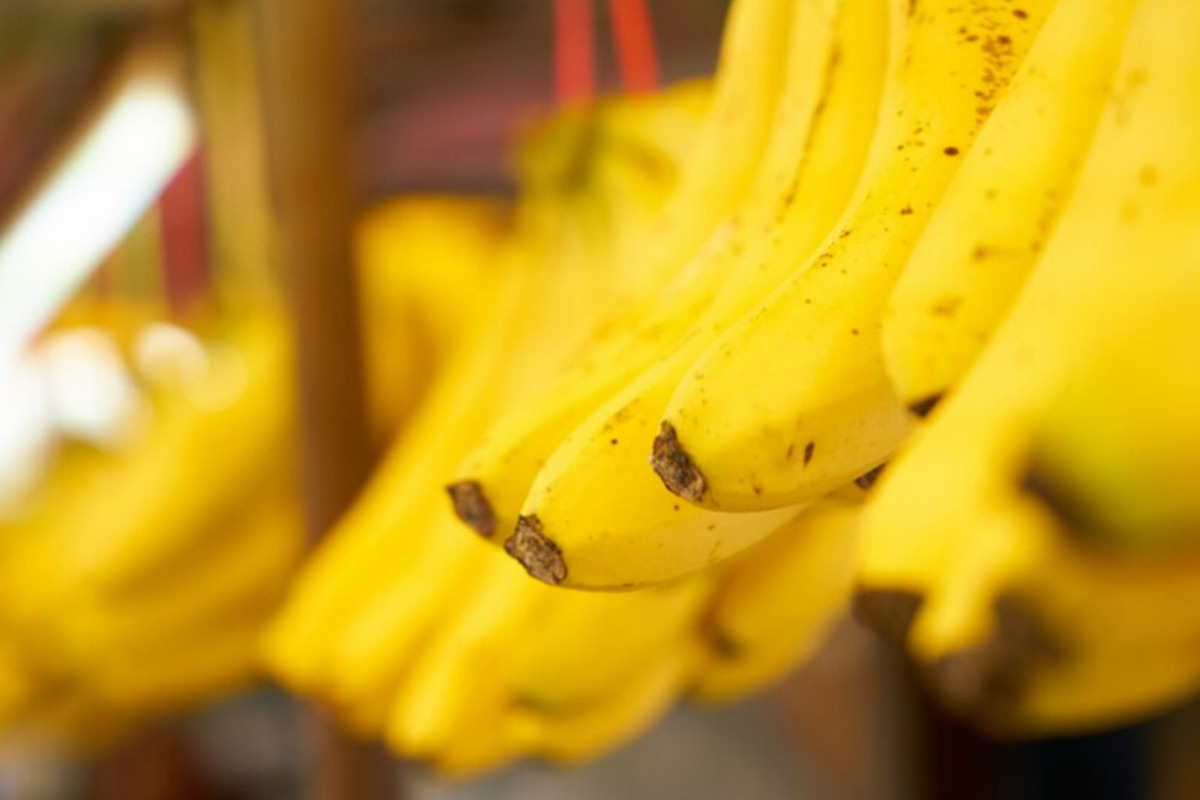“Political goods”: the consequences for Russia from stopping the supply of bananas from Ecuador are named
[ad_1]

“For many years, prices in the Russian Federation were among the lowest in Europe”
The unpleasant story with Ecuadorian bananas has acquired several new plot twists. Overall encouraging. In particular, as stated by the Minister of Foreign Trade of Ecuador, Sonsoles Garcia, her country provided Moscow with a “technical justification” for lifting restrictions on supplies. It also became known that the first batch of bananas from India was sent to Russia in January, and the second is expected in February. Experts do not yet see any prerequisites for a shortage of these tropical fruits, however, according to them, events could go according to any scenario.
Let us remind you: Rosselkhoznadzor suspended the supply of bananas to the Russian Federation from five enterprises in Ecuador on February 5 due to the detection of a polyphagous humpback fly in them. In response, Sonsoles Garcia noted that the insect in question “is not an agricultural pest and does not attack or infect crops.” Meanwhile, the Russian side has been making claims about the humpback fly against banana producers from Ecuador since at least the end of 2019. At that time, this country accounted for 96% of all supplies of berries (not fruit!) to the Russian Federation, today it is hardly less. Russia is one of the main buyers for Ecuador, accounting for 20% of its exports under the corresponding item. Over the 11 months of 2023, we received 1.3 million tons of Ecuadorian bananas worth $690 million.
According to UN statistics released in December, 135.5 million tons of bananas were grown worldwide in 2022. Ecuador was in sixth place in production (6.1 million tons), but it exports more bananas than any other country.
“Any food products – be it perishable or with a long shelf life – are produced not for a warehouse, but for a specific client, customer,” says Andrey Karpov, president of the Russian Association of Retail Market Experts. – To date, five certificates have been revoked from Ecuador, which is about a third of the volume of banana supplies to the Russian Federation from this country. For now, we can assume that some consumers will switch, for example, to apples. But if Russia suddenly loses all Ecuadorian imports, this will be serious: it will be extremely difficult to immediately replace a market share of 96%. We will have to negotiate with other suppliers, look for alternatives, build logistics, and re-sign existing contracts. This will take time, since we are talking about wholesale volumes of tens, even hundreds of millions of dollars per year.”
Today, products from Ecuador have the lowest price possible for Russia on the global banana market. However, there is little good in such an obsession with one supplier. It would be better if there were three or four of them, with approximately equal shares for each. Then the risks would be dampened naturally, argues Karpov. According to him, a shortage of bananas is possible only in certain regions of the Russian Federation, although even such a scenario is hard to believe. The main volumes come from abroad to the ports of St. Petersburg, then go through Moscow to the central part of the country, spreading further along the periphery. Business is quite flexible by nature; a holy place is never empty. This means that sooner or later an adequate replacement for Ecuadorian goods will be found: supplies to Russia can be expanded at the expense of other countries (such as Angola, Nigeria, Guatemala), whose total share in the circle of importers today does not exceed 4%.
“As for India, although it is the largest producer of bananas in the world, it consumes over 90% itself,” notes Karpov. – There it is a socially significant product, as affordable as possible for the population. Supplies of bananas to Russia can be realized on the basis of a political agreement between Moscow and Delhi. Perhaps this will partially solve the problem with rupees stuck in the accounts of Russian commodity exporters in Indian banks, which few people need. In addition, Rosselkhoznadzor must issue all the necessary documents and phytosanitary certificates to suppliers in India, which will also take time.”
In Russia, for many years, prices for bananas were among the lowest on the European continent. In fact, they depended only on the dynamics of the ruble-dollar exchange rate, recalls Dmitry Yanin, chairman of the board of the International Confederation of Consumer Societies (ConfOP). Logistics chains (from plantations in countries of production to stores in the Russian Federation) were built in the most optimal way. This made it possible, firstly, to save on freight and payment, and secondly, to ensure the availability of affordable bananas on Russian shelves.
“It takes a lot of foreign currency to purchase them (which the country already lacks due to falling revenues from oil and gas exports), hundreds of millions of dollars annually. Bananas are a political commodity,” sums up Yanin. – This is perhaps the largest imported food category. There is no price alternative to bananas on the market; they are cheaper than many varieties of apples, including domestic ones. Officials understand this very well and will do everything to prevent outright force majeure.”
[ad_2]
Source link






